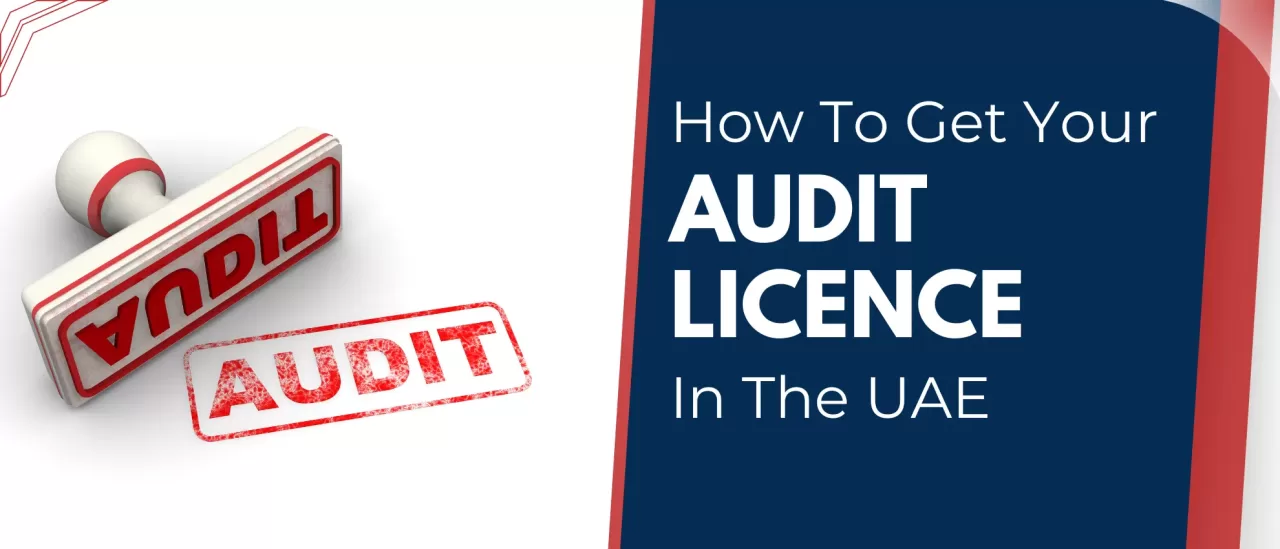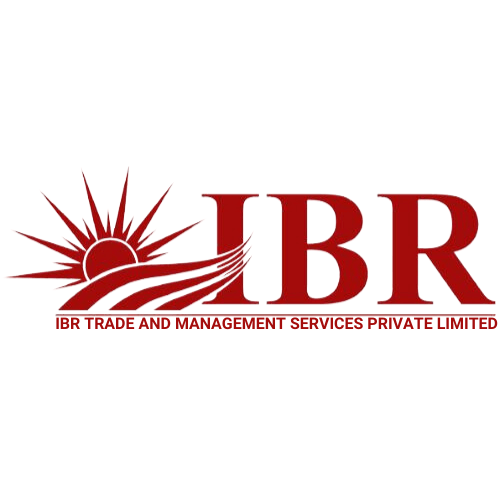How To Get Your Audit Licence In The UAE

Obtaining an audit license in the United Arab Emirates is your pass to a plethora of career prospects in the flourishing economic landscape of the region. The Ministry of Economy is in charge of the procedure, which has a number of stringent standards, including educational backgrounds, real-world experience, and accredited certifications.
You must finish a thorough application and inspection process, adhering to UAE-specific laws and the most recent International Financial Reporting Standards.
We’ll go through all the requirements in detail so you can obtain your audit license in the United Arab Emirates, including fulfilling the experience and education requirements, passing the tests, and maintaining the validity of your license through further professional development.
We will provide you with the necessary information to launch a reputable auditing career in the UAE’s vibrant economic landscape, regardless of whether you’re an international candidate or a local resident.
Audit Licence Requirements in the UAE
The Auditing Profession in the UAE
The UAE’s growing economy has resulted in a rise in the need for certified auditors. This increase is indicative of the nation’s growing corporate environment, which necessitates strict compliance and financial scrutiny.
As a result, the UAE has established strict requirements for anyone wishing to pursue a career in auditing, guaranteeing that only the most qualified people are given this responsibility.
Essential Qualifications and Educational Background
To begin working as an auditor in the United Arab Emirates, you must hold a bachelor’s degree in a relevant discipline, such as business administration or accounting. The theoretical knowledge required is provided to you by this educational foundation.
Having a master’s degree, however, can offer you a substantial edge due to the industry’s competitive character, signaling a deeper grasp and devotion to the field.
Importance of Experience in the Auditing Field
The auditing profession requires a great deal of practical experience. It is anticipated that you have worked for at least three years, preferably in prestigious firms, honing your abilities.
This time is crucial for gaining a practical grasp of auditing standards and procedures, which cannot be adequately achieved by academic study alone.
Recognised Professional Certifications
In the UAE, professional certifications are essential to the auditing industry in addition to formal education and experience. Not only are recognized credentials like ACCA or ICAEW advised, but frequently they are also necessary. These credentials provide as evidence of a person’s proficiency and dedication to maintaining the highest standards of auditing practice.
In addition, auditors are required to demonstrate their competence by passing tests that evaluate their understanding of International Standards on Auditing (ISA) and International Financial Reporting Standards (IFRS). They also need to understand the regulatory and tax structures unique to the United Arab Emirates.
In the United Arab Emirates, audit licenses are issued by the Ministry of Economy (MoE), which has lately tightened the conditions to get one. The new rules, which are contained in Ministerial Resolution No. 111-2 of 2022, are designed to improve auditing quality by imposing stricter requirements on experience and education levels. As per the new regulations, auditors need to possess a current practicing certificate from an approved professional organization and a minimum of five years of experience.
In addition, audit firms have to establish a risk management structure and have a minimum of two partners, each with five years of auditing expertise.
Process and Timeframe To Licensing
It normally takes three to six months to receive an audit licence, including finishing the appropriate coursework, passing the relevant tests, and sending the necessary paperwork to the MoE. Professionals from other countries are welcome to apply as long as they fulfill the same strict requirements as citizens of the UAE, which may include submitting extra paperwork such residency permits and confirmation of identity.
Being able to conduct audits for a wide range of clients, from government agencies to publicly traded firms, is one of the many opportunities that come with holding an audit license in the United Arab Emirates. Additionally, it improves your professional credibility and marketability by granting you the right to publish audit findings that investors and regulators alike accept and acknowledge.
For individuals wishing to start an audit firm in Dubai, a methodical strategy is essential. The first steps include deciding on a company name and organizational structure, acquiring the required licenses and permits, finding a site and office space, handling the necessary funds, and opening a bank account. Other crucial actions include starting and marketing the business, hiring and training employees, and so forth.

Costs
To obtain an audit license, the application, examination, and membership fees in recognized accounting bodies may come to a total of USD 1,360 to USD 2,725 (AED 5,000 to AED 10,000). Auditors must do continuous professional development (CPD) in order to maintain their licenses. Each year, they have to finish 20 to 40 hours of relevant training to keep up with evolving laws and accounting standards.
Starting an audit firm might cost as low as USD 6,810, or AED 25,000. However, depending on a variety of factors, such as the business’s size, location, and services offered, this could vary considerably.
Registering with the UAE Auditors’ Association
A structured pathway for auditors to obtain the required certifications has been established by the UAE Auditors’ Association in partnership with the MoE.
Steps to Register with the Ministry of Economy
Auditors need to prove they are experts in a few important areas before they can register with the MoE. Ministerial Resolution 111-2 of 2022 requires auditors to pass exams on ISA, IFRS, and tax and regulation in the United Arab Emirates. You will only need to pass the test on UAE tax and regulations if you are already qualified by certain professional bodies, such as ACCA, ICAEW, AICPA, CPA Australia, CPA Canada, and SOCPA.
In collaboration with the MoE and the Emirates Association for Accountants and Auditors (EAAA), the ACCA conducts these tests. Final exams are administered at supervised British Council testing centers in Abu Dhabi, Dubai, or Sharjah once they have been completed online. You are granted the UAE Fellowship as soon as you complete these tests or demonstrate your exclusion.
Document Requirements for Initial Approval
You will need to submit paperwork attesting to your qualifications and competence in order to receive initial approval. This contains proof that the required tests were passed or that an exemption was granted.
Maintaining your professional development also means completing 30 hours or more of ongoing education every year, with particular hours allocated to IFRS, ISA, and UAE tax and law.
The Role of Professional Auditing Bodies in UAE
Maintaining audit quality and bringing methods into compliance with international standards are crucial tasks for professional auditing organizations like the Emirates Association for Accountants and Auditors (EAAA). In addition to offering its members technical help, the EAAA actively monitors and evaluates best practices in quality assurance review procedures. Additionally, it organizes knowledge-sharing initiatives with global professional accounting associations. It strives to put the updated ISA 220 and the International Standards on Quality Management (ISQM) into practice.
The EAAA makes sure that its members are aware of the most recent ethical norms and regulations, especially those pertaining to the recently implemented UAE tax code. It is evaluating how well its professional education programs match with the most recent versions of international education standards and offers the UAE Chartered Accountant (UAECA) credential. In order to assist with the application of IFRS and the International Ethics Standards Board for Accountants (IESBA) Code of Ethics, the association also offers training and tools.
Fees Associated with Registration
It is acknowledged that there are expenses related to the registration procedure, such as examination fees and membership dues for professional associations like the EAAA, even though precise fee structures are not specified. These costs go toward funding the association’s resources and assistance, which include access to up-to-date standards and ethical guidelines, technical support, and courses for ongoing professional development.

Preparing for the Auditing Exam
Exam Eligibility and Application Process
You have to follow a specified application protocol and meet specific requirements in order to be qualified for an audit licence. Passing required exams to demonstrate knowledge of ISAs, IFRS, and local tax and legislation. One benefit for those who have already earned their certification from one of the six reputable professional associations is that they simply need to pass the exam that covers local tax and regulation.
Registration with the EAAA and the MoE is a requirement of the application process. You can set up an exam schedule after registering. Those who held licenses prior to May 12, 2022, will have two years to adjust to the new standards, as long as their certification comes from one of the 21 recognized universities.
Study Guides and Resources
To help with exam preparation, the ACCA provides thorough study materials in partnership with the MoE and the EAAA. These resources are designed to provide the necessary understanding of ISAs, IFRS, and local tax laws and regulations. They consist of work guides from the IASB, the IAASB, and the IFRS Foundation.
Exam Format and Content Overview
There are 70 questions on each exam, and a 60% passing grade is required.
Within two years of the date the first paper is passed, the tests can be retaken as necessary and in any order. International financial reporting standards are covered in the ISA exam, auditing standards are covered in the IFRS exam, and the local tax code—which includes the corporate tax that will take effect on June 1, 2023, as well as other taxes—is covered in the tax and regulation exam.
It also assesses how well you comprehend local laws that are relevant to accounting and auditing, such as those pertaining to legal responsibilities, business structure, and ethical behavior.
Tips for Successfully Passing the Exam
To improve your chances of success, make a well-thought-out study plan that follows the directions and resources that are offered. Frequent practice with test questions and self-evaluations help identify areas that require further understanding. Since IFRS, ISAs, and local tax laws are always changing, it is imperative to stay up to current on these changes.
Furthermore, it is crucial to make the commitment to lifelong learning. Professionals must complete at least 30 hours of professional education each year in order to maintain their status as Fellows of the EAAA. This commitment guarantees that professionals stay up to date on industry norms and practices and helps with exam preparation.
Obtaining Practical Experience
Internship Opportunities and Their Importance
With an internship, you may apply academic principles in a real-world situation and get vital practical experience. They are essential to comprehending the daily duties performed by auditors. They are a necessary step in fulfilling the requirements for practical experience set forth by the MoE.
Working Under a Licenced Auditor
Gaining insight into the subtleties of the auditing profession requires mentoring from a seasoned auditor. This advice guarantees compliance with professional standards and aids in the development of the hands-on skills required for auditing.
Documenting Your Experience Adequately
It is essential to accurately record your career path. It should demonstrate the range of duties completed and skills obtained, demonstrating your readiness for the obligations that come with a license.
Gaining Diverse Experience Across Different Auditing Practices
Being exposed to a wide range of auditing scenarios improves your flexibility and expertise. You can better prepare for the complex nature of audit engagements in the UAE’s dynamic economic environment by participating in a variety of audit types.
Maintaining and Renewing Your Audit Licence
Renewal Cycle and Procedures
Auditors must follow a renewal cycle that involves checking their continued eligibility and following the rules as set forth. This procedure makes sure that all employees uphold the required standards, including Registered Audit Principles. The renewal is a thorough procedure that confirms the auditor’s continuous capacity to carry out their responsibilities with competence.
Continuous Professional Development (CPD) Requirements
CPD is a necessary need for audit license renewal. In order to preserve and improve their professional talents, auditors need to take part in continuing education programs. This entails fulfilling the Registrar’s or their audit firm’s additional standards, as well as the CPD requirements imposed by their Recognized Professional Body.
Records of the CPD activities completed by their auditors must be kept on file by audit companies, demonstrating their dedication to staying up to date with the constantly changing needs of the business.
Staying Updated with Industry Changes and Standards
It is expected of auditors to keep up with industry developments, such as new standards that could have an impact on their work. For example, the concepts that are necessary to carry out efficient audits are outlined in the Global Internal Audit Standards, which will go into effect on January 9, 2025.
To guarantee the continuous perfection of their audit functions, auditors are encouraged to incorporate these standards into their practice prior to their formal implementation date.
Ethical Standards and Disciplinary Actions
In the auditing profession, upholding ethical standards is crucial. Integrity, objectivity, and professionalism are highlighted in new ethical norms, like those that Abu Dhabi has implemented. Independent reporting and avoiding conflicts of interest are requirements for auditors. Professional associations or government agencies may take disciplinary action against individuals who violate these ethical standards.
Consequences of Non-Compliance
Penalties for breaking auditing standards can vary, ranging from monetary fines to more serious consequences including jail time or the cancellation of corporate licenses. Administrative punishments, such as limitations on business activities or a temporary ban from practicing in the field, can be imposed by the Central Bank of the United Arab Emirates on auditors who break regulations. To prevent such punitive actions, auditors must adhere to all applicable rules and standards.
Your Path to Auditing Success in the UAE
While completing the requirements to get an audit license in the United Arab Emirates may seem difficult, doing so opens up a world of amazing career prospects. The path entails passing difficult exams, earning relevant credentials, acquiring real-world experience, and consistently expanding your area of competence.
Your devotion to fulfilling these requirements is indicative of your passion for the industry. It puts you in line with the strict requirements of financial integrity and governance set by the UAE market.
As you move forward, keep in mind that getting an audit licence is an investment in your future that will establish you as a reliable authority in a crucial and dynamic field, not just a bureaucratic formality.
With the right planning and a persistent attitude, your work will pay off in a fulfilling career that enhances the financial stability and profitability of enterprises in the UAE’s booming economy.
Disclaimer: Above all information is for general reference only and sourced from internet, before making any kind of decision please visit the authorized websites of authorities and service providers.
